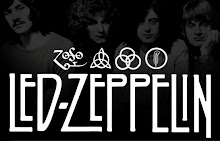What is a Ballad?
A ballad is a short narrative poem which is written to be sung and has a simple but dramatic theme. Ballads can be of love, death, the supernatural or even a combination of the three. Many ballads also contain a moral which is expressed (most often) in the final stanza.
Ballads are rhythmic saga of past happenings, which may be of heroic, satirical, romantic, political (although affected by the previous three and refers to the glorifying the exploits or causes of a leader or group, usually about a totalitarian system), catastrophic (which is related to in third person).
Two main characteristics of ballads are incremental repetition and the ballad stanza. Incremental repetition is the repeating of one or more lines, with slight but significant changes which advance the action. The ballad stanza is made of four lines; most commonly the first and third lines contain four feet (stresses), while the second and fourth lines contain three feet. Ballads most often have abrupt openings, brief descriptions and economical, although frequent, dialogue.
Types of Ballads
Broadsheet Ballads
(also known as street ballads)
· Cheaply printed, topical, humorous, mildly subversive.
· Sub-genres
o Murder ballads
§ Usually told from the killers point of view. The ballad recounts the crime and ends with him getting caught or escaping. Occasionally ends with a moral. Most of the murderers are men and the victims female.
Folk Ballads
· Usually anonymous and presented impersonal.
· Sub-genres
o Border ballads (includes fairy ballads)
§ .
Jazz Ballads
· Sentimental narrative adagio. Although many modern rock, pop and country songs label any slow song as a jazz ballad, this is not the case. The song must be in ballad form to be a ballad.
Saturday, December 13, 2008
Subscribe to:
Post Comments (Atom)

No comments:
Post a Comment